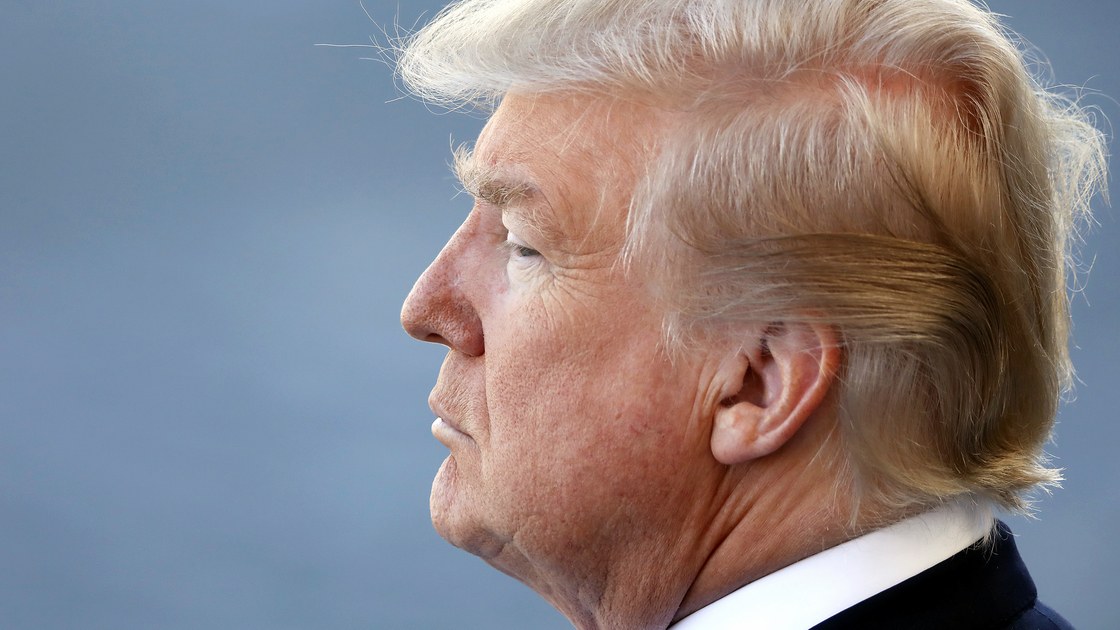Trump’s Tweeted Transgender Ban Is Not a Law

A tweet by a President is neither a law nor an executive order. That reality is important to keep in mind when considering President Trump’s tweet on Wednesday morning, saying that the U.S. government “will not accept or allow transgender individuals to serve in any capacity in the U.S. Military.” Trump’s tweet seemingly banning transgender people from military service has the same legal efficacy as his myriad other tweets expressing desires, promises, and intentions, many of which are unlikely to come to fruition, from building a wall on the Mexican border to changing the libel laws.
Before Trump’s tweet, the Pentagon was implementing a system of rules and regulations that allowed transgender individuals to serve in the military. An estimated two thousand to eleven thousand openly transgender active-duty service members are currently serving in the armed forces, according to a Rand Corporation study. Less than a month ago, the military was supposed to begin allowing new recruits who are transgender to join its ranks. But Defense Secretary James Mattis announced that military leaders would take six more months to study the potential impact of that move. The deferment was disappointing but it was accompanied by an assurance that the outcome of the review was not predetermined. And the delay did not, in any event, contemplate a possible outright ban on transgender individuals serving in the military.
At the same time, Congress has been debating the funding of medical treatment related to gender transition for military personnel. The Rand study estimated that the move would increase military health-care costs by between $2.4 million and $8.4 million a year, a 0.04 to 0.13 per cent increase in over-all Pentagon spending.
Trump seems to have taken military leaders by surprise on Wednesday by suddenly announcing, via tweet, a full transgender military ban. The Times reported that Mattis was on vacation and, according to people close to him, he was “appalled that Mr. Trump chose to unveil his decision in tweets, in part because of the message they sent to transgender active-duty service members, including those deployed overseas, that they were suddenly no longer welcome.”
There also appears to have been no directive from the Defense Department on which Trump based his blanket announcement, which would be remarkable in any normal Administration. The Times said it asked eight Defense Department officials how the ban would be carried out and how it would affect openly transgender active-duty members. None of the officials could give a definitive answer.
Ironically, Trump’s tweets came on the sixty-ninth anniversary of the executive order issued by President Harry Truman that desegregated the American military. Over the objections of many white officers, Truman signed Executive Order 9981, on July 26, 1948, which stated, “It is hereby declared to be the policy of the President that there shall be equality of treatment and opportunity for all persons in the armed services without regard to race, color, religion, or national origin.” Truman’s order began a decades-long, and still imperfect, effort by the military to turn itself into one of the most integrated institutions in American society.
It remains to be seen whether the Pentagon will actually adopt the transgender ban referred to in Trump’s tweet. If it does, the tendency of Trump and his aides to make public comments that turn out to be helpful to their opponents in legal battles could complicate implementation of the ban. After Trump tweeted his ban, an unnamed Administration official told Jonathan Swan of Axios that “this forces Democrats in Rust Belt states like Ohio, Michigan, and Wisconsin to take complete ownership of this issue. How will the blue-collar voters in these states respond when Senators up for re-election in 2018 like Debbie Stabenow are forced to make their opposition to this a key plank of their campaigns?” Statements like these could create significant problems for the Administration’s lawyers tasked with defending the lawsuits to come.
A basic and long-standing legal principle is that government actions must have a “rational basis,” which is the lowest level of Constitutional scrutiny. Basing a government policy on an urgent need to win midterm elections would not satisfy such a requirement. It is debasing that we spend so much energy in reaction to a President whose erratic, hundred-and-forty-character statements, unfortunately, often seem to embody no rational basis at all.







